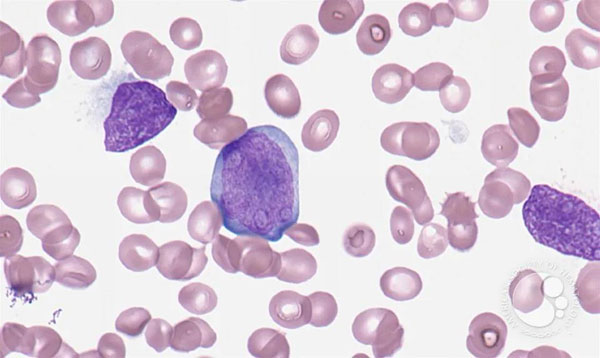Crizotinib was approved to treat anaplastic large cell lymphoma
- Why Lecanemab’s Adoption Faces an Uphill Battle in US?
- Yogurt and High LDL Cholesterol: Can You Still Enjoy It?
- WHO Releases Global Influenza Vaccine Market Study in 2024
- HIV Infections Linked to Unlicensed Spa’s Vampire Facial Treatments
- A Single US$2.15-Million Injection to Block 90% of Cancer Cell Formation
- WIV: Prevention of New Disease X and Investigation of the Origin of COVID-19
Crizotinib was approved to treat anaplastic large cell lymphoma
Crizotinib was approved to treat anaplastic large cell lymphoma. The targeted drug crizotinib was approved to treat anaplastic large cell lymphoma, with a remission rate of 88%!
Anaplastic large cell lymphoma is a relatively rare lymphoma, and the approval of crizotinib is also its first targeted drug.
Recently, the US FDA approved Crizotinib (trade name: Xalkori) as a new indication for the treatment of ALK-positive relapsed/refractory systemic anaplastic large cell lymphoma (ALCL) in children over 1 year old And adult patients.

The first biomarker-driven targeted drug for this type of lymphoma approved by the FDA is a major milestone in clinical treatment.
▌Targeted drugs for “niche” lymphoma
Anaplastic large cell lymphoma (ALCL) is relatively rare. It is a highly malignant tumor that originates from peripheral T lymphocytes. It belongs to non-Hodgkin’s lymphoma (NHL) and accounts for about 30% of NHL.
ALCL is mainly divided into skin ALCL and systemic ALCL. Skin ALCL accounts for about 12%, mainly manifested as isolated or localized masses on the skin of the face, trunk, and extremities, expressing CD30 but not ALK. This type of patients is dominated by chemotherapy, with a good prognosis, and the 5-year survival rate is about 90%.
Systemic ALCL accounts for about 88% and is highly aggressive, accompanied by lymphadenopathy, but nodules are more common, mainly involving bones, bones and lungs. Among them, about 65% of patients with positive ALK expression.

The clinical treatment of ALCL patients is mainly radiotherapy/chemotherapy and bone marrow transplantation, and the 5-year survival rate is about 50%. Although the effect of chemotherapy is good, some patients still develop resistance or relapse after standard treatment, and cannot achieve long-term survival or remission. Therefore, better treatments are urgently needed.
Last year, Adcetris, the first first-line targeted drug for systemic ALCL, was approved in the EU, combined with CHP (cyclophosphamide, doxorubicin, prednisone), for the treatment of systemic ALCL patients who have not received previous treatment , Broke the ten-year plight of no target.
▌About Crizotinib
Crizotinib is a tyrosine kinase inhibitor (TKI), mainly by blocking an enzyme called anaplastic lymphoma kinase (ALK).
In August 2011, Crizotinib was approved for marketing in the United States for the treatment of ALK+ lung cancer. At present, the drug has been approved to treat ALK-positive and ROS1-positive NSCLC patients in dozens of countries/regions including the European Union, China, and Canada.
In May 2018, crizotinib was awarded the FDA Breakthrough Therapy (BTD) designation, and its indication is ALK-positive ALCL.
▌Remission rate is 88%! Crizotinib is approved for new indications!
This approval is based on the results of study ADVL0912 (NCT00939770). The study enrolled 121 patients aged 1-21 years, including 26 ALK-positive relapsed/refractory ALCL patients who had received at least one systemic treatment.
The results show that:
- The objective response rate (ORR) of patients receiving crizotinib was 88%. Among the 23 patients who responded to treatment, 39% sustained remission for at least 6 months, and 22% sustained remission for at least 12 months.
- And in this trial, the safety of crizotinib is consistent with that observed in ALK-positive and ROS1-positive metastatic NSCLC patients.
The approval of crizotinib is a major advancement in the treatment of ALCL patients, bringing new treatment options for patients with drug resistance or relapse.
(source:internet, reference only)
Disclaimer of medicaltrend.org



